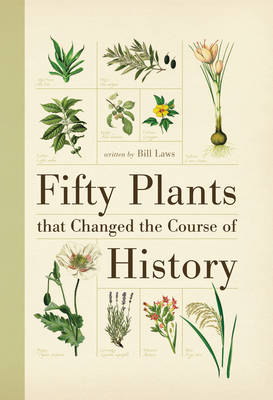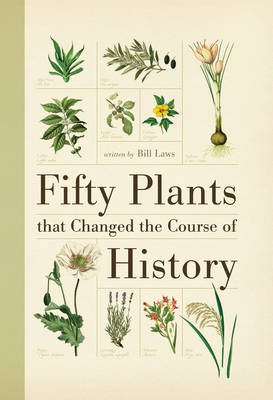
- Retrait gratuit dans votre magasin Club
- 7.000.000 titres dans notre catalogue
- Payer en toute sécurité
- Toujours un magasin près de chez vous
- Retrait gratuit dans votre magasin Club
- 7.000.0000 titres dans notre catalogue
- Payer en toute sécurité
- Toujours un magasin près de chez vous
Description
The fascinating stories of the plants that changed civilizations.
"This book will mesmerize plant-lovers and non-gardeners alike."
--American Gardener
"This marvelous collection of tales deserves to be read and enjoyed."
--Chicago Botanic Garden
Fifty Plants that Changed the Course of History is a beautifully presented guide to the plants that have had the greatest impact on human civilization. Entries feature a description of the plant, its botanical name, its native range and its primary functions--edible, medicinal, commercial or practical. Concise text is highlighted by elegant botanical drawings, paintings and photographs as well as insightful quotes.
Many of the plants are well known, such as rice, tea, cotton, rubber, wheat, sugarcane, tobacco, wine grapes and corn. However, there are also many whose stories are less known. These history-changing plants include:
- Agave, used to make sisal, poison arrows, bullets, tequila and surgical thread
- Pineapple, which influenced the construction of greenhouses
- Hemp, used for hangman's rope, sustainable plastics, the Declaration of Independence and Levi's jeans
- Coconut, used for coir fiber, soap, margarine, cream, sterile IV drips and coagulants
- Eucalyptus, used in mouthwash, diuretics, vitamins, honey, underwear and fire-resistant uniforms
- Sweet pea, which Gregor Mendel used in his research on genetics
- White mulberry, used to feed the caterpillars that make silk
- English oak, used for fire-resistant structures, dyes, leather tanning, charcoal, casks and ships
- White willow, used in the manufacture of aspirin, cricket bats, hot-air balloon baskets and coffins.
This attractive reference provides an innovative perspective on both botanical and human history.
Spécifications
Parties prenantes
- Auteur(s) :
- Editeur:
Contenu
- Nombre de pages :
- 224
- Langue:
- Anglais
- Collection :
Caractéristiques
- EAN:
- 9781770855885
- Date de parution :
- 30-07-15
- Format:
- Livre broché
- Format numérique:
- Trade paperback (VS)
- Dimensions :
- 170 mm x 224 mm
- Poids :
- 566 g

Les avis
Nous publions uniquement les avis qui respectent les conditions requises. Consultez nos conditions pour les avis.






